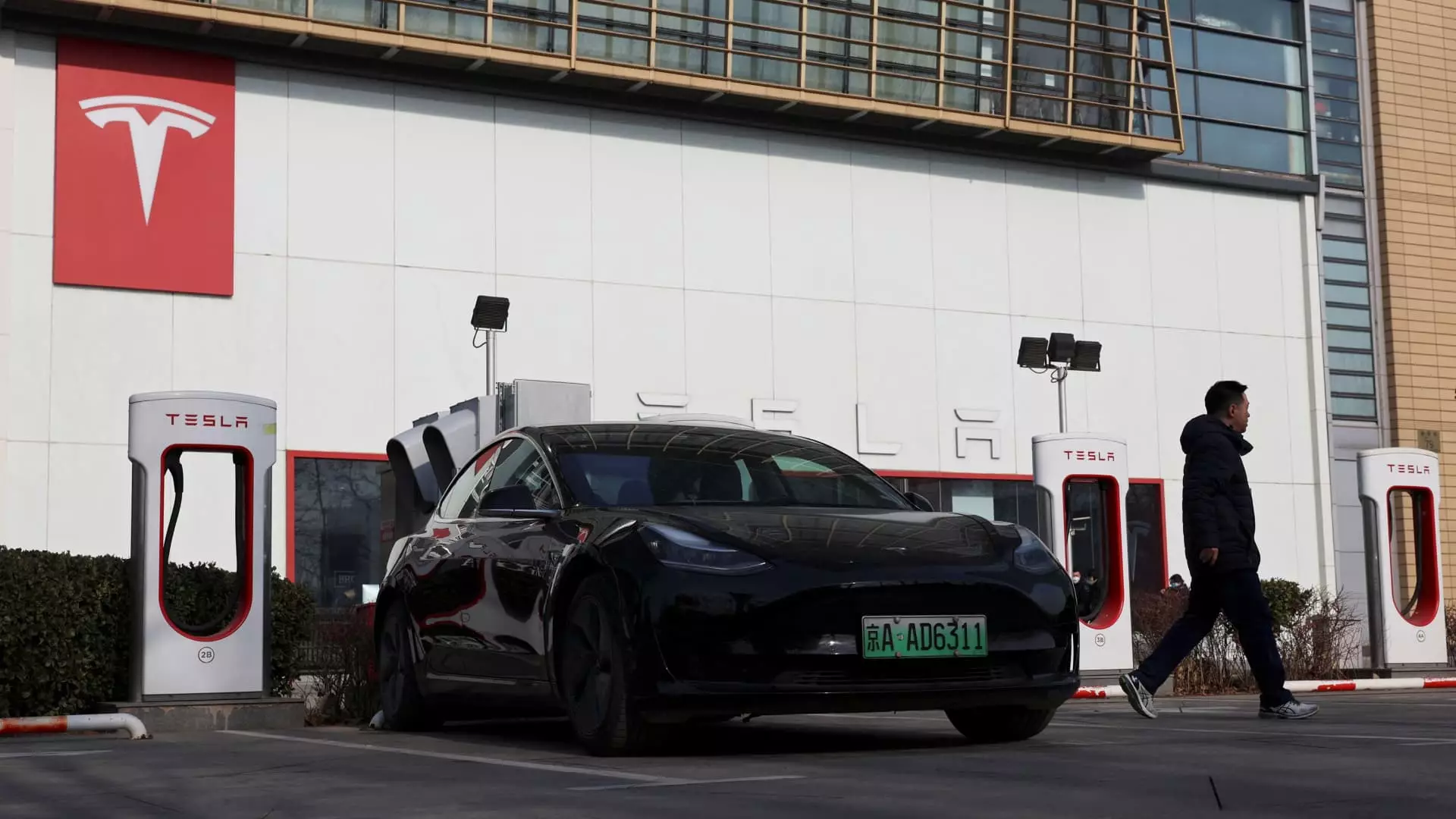Since the early 2000s, globalization transformed markets worldwide, yet the automotive industry seems to be at the cusp of a seismic shift. With the increasing electrification of vehicles, the dynamics of the Chinese automotive market are changing rapidly. Predictions point towards 2025 as a pivotal year wherein local electric vehicle (EV) manufacturers, particularly BYD, are poised to establish themselves as definitive market leaders, potentially edging out traditional foreign competitors and reshaping the industry’s landscape.
As of October 2024, BYD—the quintessential emblem of China’s new energy vehicle sector—has claimed approximately 16% of the entire Chinese automotive market, marking an impressive rise from 12% just a year prior. Analysts from Nomura have indicated that BYD is consolidating its market position further, earning it recognition as their top pick in the region. The company’s quarterly revenue has not only outpaced that of Tesla for the first time but has also signaled a shift in consumer preferences toward more affordable hybrid options in contrast to the luxury price range of Tesla’s offerings.
This trend is particularly significant given that Tesla’s sales in China fell by 4.3% year-on-year, while BYD experienced a staggering 67% increase in the same timeframe. It suggests not just a competitive edge for BYD but also highlights a possible consumer shift toward value-for-money vehicles amid a rapidly evolving industry. Even though BYD continues to manufacture a substantial number of hybrid vehicles, the momentum it has gained over the last few years indicates a robust and strategic adaptability in the face of changing market expectations.
While BYD emerges as a juggernaut, Geely is also positioning itself strategically within the EV segment. Currently holding approximately 8% of the Chinese automotive market, Geely has plans for significant growth, with HSBC analysts predicting a rise in sales to 2.6 million units by 2025. The acquisition of global brands such as Volvo and the establishment of electric car brands like Zeekr showcase Geely’s ambition to expand its footprint internationally.
What is particularly noteworthy about Geely is its strategy to embrace efficiency alongside technological advancements, which includes a target of reaching 40% electric vehicle penetration in sales. The emphasis on newly launched models also points to the company’s understanding of consumer needs in a highly competitive market. This strategic maneuvering could potentially allow Geely to capture market share from foreign automotive giants that have struggled to adapt to the local consumer preferences, particularly as the demand for hybrids and fully electric vehicles skyrockets.
The days of traditional Western giants like General Motors dominating the Chinese market might be coming to an end as these companies face a paradigm shift. GM’s recent announcement about restructuring its joint venture with SAIC Motor Corp. indicates not merely operational difficulties but a broader issue of misjudgment regarding Chinese consumers’ preferences for electrification and sustainability. The automotive landscape has evolved, yet many legacy players have clung to outdated strategies that are incompatible with modern consumer expectations.
As these foreign manufacturers grapple with escalating costs and declining market share, Chinese EV startups, however small, are enjoying greater acceptance and success. The inclination of consumers to favor brands that provide innovative technologies at more accessible price points reinforces the changing tide; traditional giants must either adapt or risk obsolescence in a market that their predecessors once dominated.
In this competitive environment, several electric car startups are carving out definitive niches. Companies such as Nio, Leapmotor, and Hong Kong-listed Yongda illustrate how innovative business models can disrupt traditional automotive norms. Yongda, for instance, operates numerous stores for various new energy vehicle brands, including those in collaboration with technology firms like Huawei, emphasizing the fusion of technology and transportation.
Notably, Leapmotor’s more judicious investment in research and development compared to their rivals reflects a focused approach likely to yield competitive advantages in terms of functionality and cost. As they navigate the market’s complexities, these startups will likely drive further competition, demanding that established automakers rethink their strategies with regard to both products and operations.
As we look toward 2025, the transformative forces within the Chinese automotive market underscore an essential shift in both consumer demand and technological capabilities. For local manufacturers like BYD and Geely, the path forward appears promising, while traditional automotive companies are urged to reevaluate their approaches or face further decline. The stage is set for local electric vehicle companies to not only solidify their leadership but redefine the very essence of mobility in the world’s largest automotive market.

